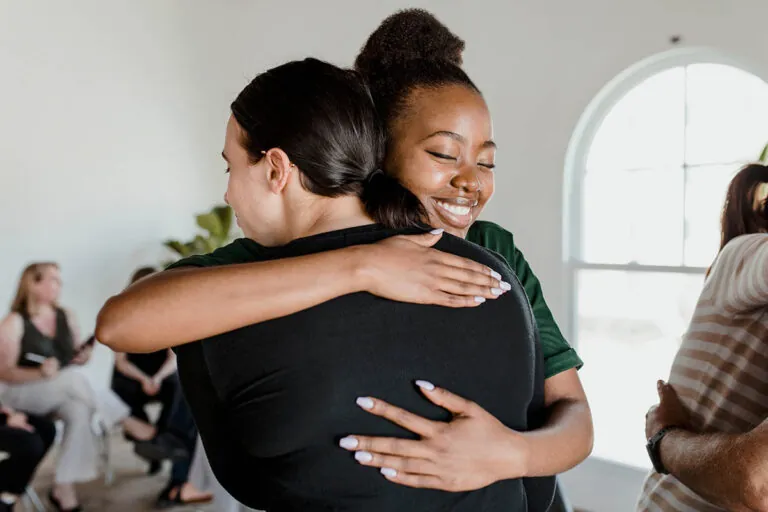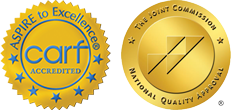People in alcohol or drug rehabs often hear the same thing: When they’re in the early stages of recovery, it’s not a good idea to pursue romantic relationships. But why? What makes relationships in recovery such a bad idea?
As it turns out, the reasons why relationships are discouraged during recovery are quite compelling. And they may not be the reasons that you would’ve guessed.
A Time for Self-Centeredness
If there were ever a time to be selfish and self-centered, it would be early recovery.
In early recovery, you’re still getting re-acclimated to your sobriety, experiencing the full extent of your emotions, and trying to figure out the next steps to take. The problem with pursuing relationships at this time is that the relationship will end up taking more and more of your time and focus. In other words, a romantic relationship will pull your focus from the things that you should actually be focused on while you’re still so new to sobriety.
Even if you could pursue a romantic relationship without sacrificing the effort you’ve been putting toward your recovery, it’s still not a good idea. After all, this would require you to stretch yourself extremely thin, putting additional stress on you that, in all likelihood, could even culminate in a relapse.
The Stress of Romantic Discourse

The best way to prevent romantic discourse from potentially triggering a relapse is to just avoid romantic relationships during the early stages of recovery.
A Substitution for Your Addiction

When a person develops an addiction, the brain changes — both chemically and structurally — in a number of ways that have significant effects on psychology. People who have developed the disease of addiction think differently, especially after being in the throes of addiction for a long period of time. Once they have gone through treatment and gotten sober, the brain begins to normalize, but many of those neurological changes remain. As a result, a phenomenon called substitution can take place.
Just as it sounds, substitution is when one addiction is substituted for another. So ultimately, while you may have overcome one form of drug addiction, substituting one addiction for another means you’ve basically ended up back where you started.
But what does this have to do with romantic relationships? Well, from what scientists have found by studying human behavior and neurology, romantic relationships affect the brain in virtually the exact same way as alcohol and drugs. This means it’s very easy to unintentionally substitute a substance-based addiction with an addiction to sex or romance because it all affects the same parts of the brain. For this reason, it’s also safer to avoid romance during early recovery.
A Distraction From What’s Most Important

Sure, we all enjoy companionship, but the pursuit of a romantic partner should never be more important than one’s own health and self-preservation. The prospect of dating may seem relatively innocuous, but the amount of time you spend dating and building a relationship with someone is basically time that you could be — but aren’t — spending on recovery.
As we bring this post to a close, we want to clarify something: If you or your loved one is already in a relationship, then this doesn’t mean you need to get a divorce or break it off with your significant other. In other words, if you already have a long-term relationship by the time you have completed a substance abuse treatment program, then there’s no need to isolate yourself. Compared to a new relationship, established relationships don’t require as much time, effort, and attention, largely because the courting phase is in the past.
The Importance of Healthy Relationships in Recovery
Not all relationships are counterproductive in a recovery process; some relationships serve as a positive catalyst in the recovery process. They provide support, understanding, and a sense of belonging, which can improve one’s emotional well-being and resilience.
Here’s why having a healthy relationship can be beneficial in addiction recovery:
- Support System: Healthy relationships offer a reliable support system, which is crucial for overcoming mental health challenges and setbacks in recovery.
- Emotional Stability: They provide emotional stability and reduce the risk of relapse.
- Positive Influence: Relationships with positive influences and healthy boundaries encourage constructive habits and discourage behaviors that could lead to relapse.
- Accountability: Loved ones can help keep individuals committed to their recovery goals.
Tips for Building Healthy Relationships in Recovery
Building and maintaining healthy relationships during recovery requires effort and mindfulness. Here are some tips to help:
Communicate Openly:
Honest and open communication is the foundation of any healthy relationship. It’s essential to express your feelings, needs, and concerns clearly and listen to your partner with empathy. Open dialogue helps build trust and understanding, which underpin a supportive and nurturing relationship.
Set Boundaries
Establishing and respecting boundaries is vital to protect your recovery journey. Boundaries help ensure that your needs are met and prevent situations that might compromise your sobriety. It’s important to communicate these boundaries to your partner and respect theirs as well.
Surround Yourself With Positive People
Positive influences can provide the encouragement and motivation needed to stay committed to your recovery goals. Surrounding yourself with people who understand and respect your journey can make a significant difference in your overall well-being.
Do you have a loved one struggling with addiction?
We know how hard that can be. Give us a call to find out what options you have.
Engage in Mutual Activities
Shared activities can strengthen your bond and create positive experiences that reinforce your commitment to sobriety. Choose activities that promote physical and emotional health so you can enjoy quality time together without the presence of substances.
Seek Professional Help
Professional guidance can provide valuable insights and strategies for managing the complexities of relationships during recovery. At Discover Recovery, we encourage seeking support to navigate the challenges and build a strong foundation for a healthy relationship.
Advice for Safe Dating During Recovery
Dating during recovery can be challenging but manageable with the right approach. Here are some pieces of advice for safe dating:
- Take It Slow: Don’t rush into a relationship; take time to understand your needs and the other person’s character.
- Stay Focused on Recovery: Ensure that your recovery remains your top priority.
- Choose Sober Activities: Engage in activities that do not involve substances and align with your recovery goals.
- Be Honest About Your Recovery: Open up about your recovery journey with your partner to nurture understanding and support.
- Avoid Codependency: Maintain your independence and avoid relying too much on your partner for emotional support.
Do you have a loved one struggling with addiction?
Just as it sounds, substitution is when one addiction is substituted for another. So ultimately, while you may have overcome one form of drug addiction, substituting one addiction for another means you’ve basically ended up back where you started.
But what does this have to do with romantic relationships? Well, from what scientists have found by studying human behavior and neurology, romantic relationships affect the brain in virtually the exact same way as alcohol and drugs. This means it’s very easy to unintentionally substitute a substance-based addiction with an addiction to sex or romance because it all affects the same parts of the brain. For this reason, it’s also safer to avoid romance during early recovery.
If you’d like to learn more about substance abuse, treatment for addiction, or how to build healthy relationships while in recovery, then you’ve come to the right place. Discover Recovery Treatment Center is a holistic addiction treatment facility that is founded on innovation, passion, and integrity. So, if you or someone you know is in need of addiction treatment, Washington’s top option is Discover Recovery.
FAQs
How can a relationship impact my recovery process?
A relationship can affect your recovery journey, both positively and negatively. On the positive side, a supportive partner can provide emotional backing, encouragement, and a sense of accountability, which can boost your motivation to stay sober. However, romantic relationships can also bring additional stress, potential conflicts, and emotional challenges. If not managed carefully, these factors can divert your focus away from your recovery goals. Discover Recovery recommends prioritizing your well-being and ensuring that your relationship does not become a source of relapse triggers.
How can I balance my recovery and a relationship?
Balancing your recovery with a relationship requires clear communication, setting boundaries, and mutual understanding. It is essential to prioritize your sobriety by allocating time for therapy, support groups, and self-care activities. Discuss your recovery journey openly with your partner to create a supportive environment where both of you understand each other’s needs and limitations. At Discover Recovery, we recommend establishing routines that include time for personal growth and shared activities that do not involve substances so that your detox remains at the forefront.
What should I do if my partner is also in recovery?
If your partner is also in recovery, it is crucial to support each other while maintaining individual paths to sobriety. Attend support groups together but also separately so that both of you receive the attention and care needed for personal growth. Encourage open dialogue about your respective challenges and successes, and be vigilant about potential triggers that could affect either of you. Discover Recovery suggests creating a plan that includes coping strategies and relapse prevention techniques to strengthen your relationship and recovery simultaneously.
What are the signs of a healthy relationship in recovery?
A healthy relationship in recovery is characterized by mutual respect, open communication, and emotional support. Both partners should feel understood and valued while building their relationship on the strong pillars of honesty and trust. Healthy relationships encourage each other’s growth and sobriety, avoiding behaviors that could lead to relapse.
Signs of a healthy relationship include shared goals, constructive conflict resolution, and a commitment to maintaining sobriety together. Discover Recovery advocates for relationships that promote well-being and provide a safe, nurturing environment for both individuals.
How does sobriety affect romantic relationships?
Sobriety brings significant changes to romantic relationships, often leading to improved communication, increased trust, and deeper emotional connections. However, it can also reveal underlying issues that were previously masked by substance use disorder. Partners may need to navigate these new dynamics and learn to handle emotions more constructively.
At Discover Recovery, we recognize that sobriety can strengthen relationships by establishing a healthier, more authentic connection, but it requires effort and patience from both partners to adapt to this new chapter in their lives.
If you’d like to learn more about substance abuse, treatment for addiction, or how to build healthy relationships while in recovery, then you’ve come to the right place. Discover Recovery Treatment Center is a holistic addiction treatment facility that is founded on innovation, passion, and integrity. So if you or someone you know is in need of addiction treatment, Washington’s top option is Discover Recovery.
Don’t wait — contact us today.





